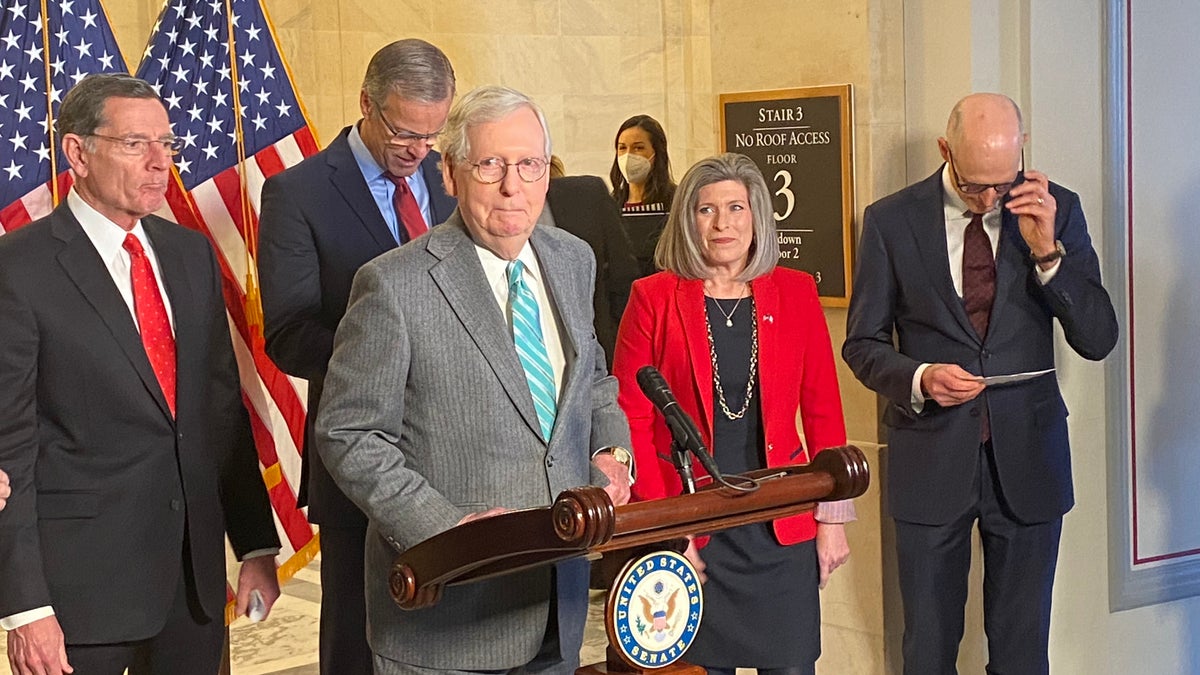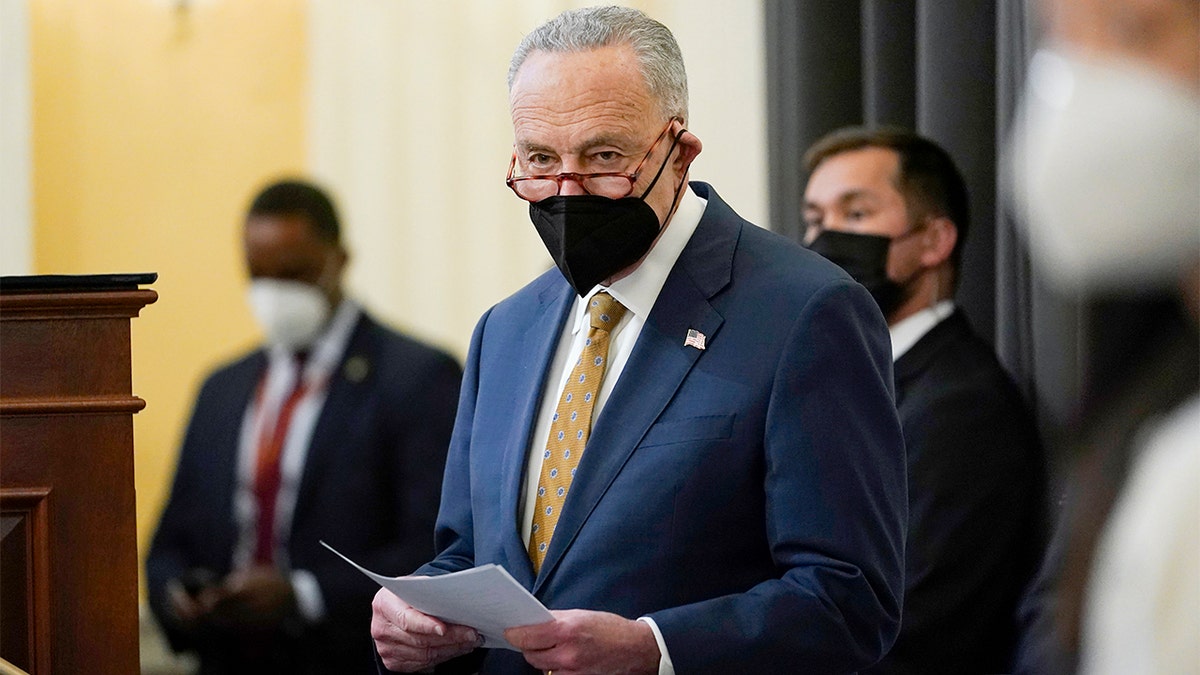Fox News Flash top headlines for January 11
Fox News Flash top headlines are here. Check out what's clicking on Foxnews.com.
Senate Minority Leader Mitch McConnell Tuesday threatened to essentially shut down a "post-nuclear Senate" as Democrats speed toward a potential vote on altering the Senate's 60-vote filibuster in the next week.
"I think it's appropriate to ask: What would the Senate look like in a post-nuclear world?" McConnell said, referring to the "nuclear option" of creating a new Senate precedent with just 50 votes needed to allow passage of legislation.
"A post-nuclear Senate would not be more efficient or more productive. I personally guarantee it," McConnell also said. "Do my colleagues understand how many times per day the Senate needs and gets unanimous consent for basic housekeeping? Do they understand how many things could require roll call votes? How often the minority could demand lengthy debate?"
This is not the first time McConnell made similar threats on the filibuster issue. He made nearly identical comments early last year when Democrats first took over the Senate and appeared ready to push for an end to the legislative filibuster. But these latest comments come as Democrats appear more serious about getting rid of the filibuster than ever.

Senate Minority Leader Mitch McConnell, R-Ky., discusses Democrats proposed filibuster changes at a press conference in the Russell Senate Office Building on Jan. 11, 2022. (Tyler Olson/Fox News)
McConnell Tuesday also threatened to use the Senate's "Rule XIV," which allows any senator to place a bill on the Senate's calendar, to hijack "the ability to set the agenda" in the Senate, which is "now exclusively in the hands of the majority."
That comment followed an opening salvo on the issue Monday night in which McConnell used Rule XIV to place several GOP bills on the calendar. Majority Leader Chuck Schumer, D-N.Y., who promised to bring filibuster changes up for a vote in the next week if Republicans don't vote for Democrats' elections bills, responded by offering to vote on those bills at a simple-majority threshold if Democrats got simple-majority votes on the elections bills.
A year ago during the insurrection, people tried to break the electoral college. And now, Senate Democrats are trying to break the Senate,
"Last night, you may have seen Senator McConnell try to Rule-14 18 gotcha amendments. He was trying to say, ‘See, Democrats, you're not going to like 50 votes,'" Schumer said in a press conference Tuesday. "I challenged him and asked unanimous consent that we have 50 votes on those 18 plus the voting rights Act, the Freedom to Vote Act, and the John Lewis Act. And of course, he objected. So we're not afraid of 50 votes. We want 50 votes. And McConnell's gotcha activity didn't quite work."
But nevertheless, McConnell doubled down on his threats to retaliate if Democrats "break the Senate" by getting rid of or reducing the strength of the filibuster.
"A year ago during the insurrection, people tried to break the Electoral College. And now, Senate Democrats are trying to break the Senate," McConnell said.

Senate Majority Leader Chuck Schumer of N.Y., waits to speak during an event to mark one year since the U.S. Capitol insurrection on Capitol Hill in Washington, Jan. 6, 2022. (AP Photo/Susan Walsh, Pool)
"Our colleagues who are itching for a procedural nuclear winter have not even begun to contemplate how it would look," McConnell said. "Our colleagues who are itching to drain every drop of collegiality from this body have not even begun to consider how that would work."
CLICK HERE TO GET THE FOX NEWS APP
The two bills Schumer is demanding the Senate pass are the Freedom to Vote Act and the John Lewis Voting Rights Advancement Act. They are almost universally opposed by Republicans and therefore nearly certain to fail if they're voted on with the filibuster in place.
There's been some chatter on Capitol Hill about a much narrower election reform effort — an overhaul of the Electoral Count Act, the bill that lays out how electoral votes are tallied. McConnell said he's open to changes on that, because it's "actually related to what happened on Jan. 6 of 2021."
But it's not clear Democrats will go for that much-narrower reform when they have more ambitious priorities — at least for now.
Fox News' Marisa Schultz and Jared Halpern contributed to this report.















































